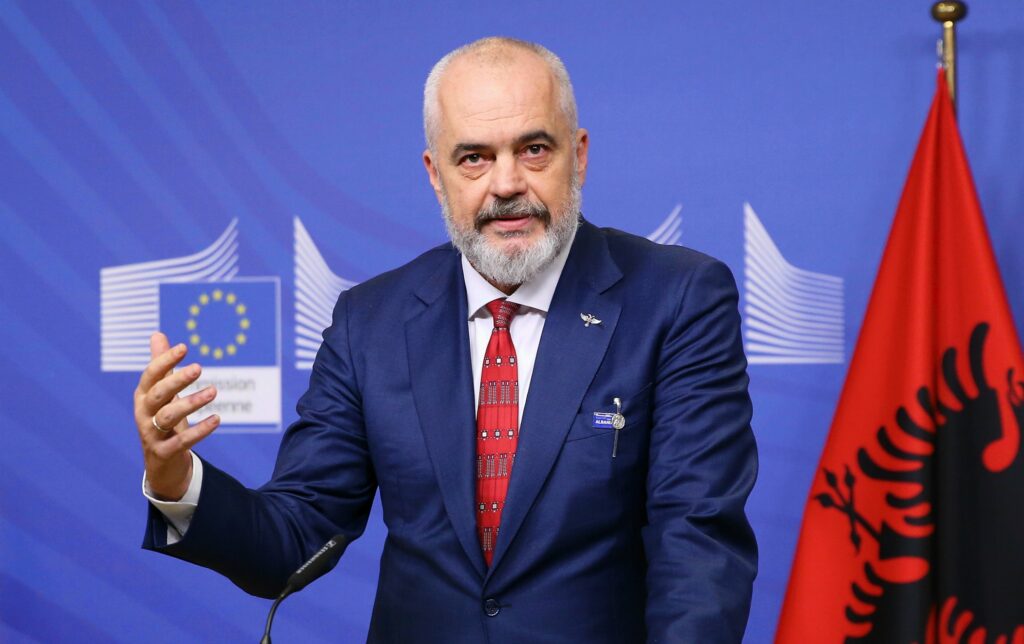Manas Dasgupta
NEW DELHI, Sept 17: While the Taliban in Afghanistan following Islamic law refuses to share power with women and force the weaker sex to stay indoors shunning education and jobs, another country with more than 60 per cent of the population following Islam, most of them Sunni Muslims like the Afghans, has appointed 12 women in the 17-member central cabinet.
The distinction has been achieved by Albania where the Parliament on Friday approved a cabinet dominated by women after 20 hours of Parliamentary debate. The country’s parliament voted 77-53 for the new Cabinet under Prime Minister Edi Rama. Of the 17 Cabinet seats, 12 will be held by women.
With this, Albania also moved up to fifth rank globally in women’s representation in Cabinet, according to the latest UN figures.
The move was hailed as a bold step considering that discrimination against women was still prevalent in Albania as in most of the Muslim-dominated countries. The newly reelected premier said his new government “will enter history as the Cabinet with the highest number of women.” The 57-year-old Edi Rama has assigned women to top positions throughout his career. Ahead of the vote, Rama said discrimination against women was still prevalent in Albanian society. “The battle against gender discrimination and domestic violence remains very open and far from being won,” he said.
Edi Rama was voted in as premier for the third time after his left-wing Socialist Party’s sweeping election victory in April.
He said fighting crime will be among his priorities for his third term.
Rama said the new government would focus on infrastructure projects, combating the pandemic, and repairing the damage from a devastating earthquake that struck in late 2019. The Balkan nation has been a member of NATO since 2009 and is seeking European Union membership.
According to the latest census figures from 2011, over half (56.7 per cent) of Albania’s 2.8 million population are self-declared Muslims, the majority of which are Sunni, ten per cent are Catholics, almost 7 per cent identify as Orthodox, 5.5 per cent say they do not have a religion, 2.5 per cent identify as atheist.
Meanwhile, in Afghanistan, the real status of the Panjshir valley, believed to be the last post being held by the anti-Taliban forces, still remained fuzzy with contradictory claims being made by the Taliban and the Resistant Force led by Ahmad Massoud and the former vice-president Amrullah Saleh.
As all communication channels were snapped, residents of one village did not know what was happening in the next village. While the Taliban claim they have captured Panjshir, the valley has fallen silent with only old people and livestock left.
With the struggle for Panjshir extending over weeks now, the mountain province of Afghanistan’s Panjshir has turned into a ghost town with the majority of people leaving for other cities, especially Kabul.
Panjshir was the only province in Afghanistan which the Taliban have not been able to fully capture, though they claimed the same. The Northern Resistance Front claimed the fighting is still on and Ahmad Massoud is also seeking the help of the United States through a lobbyist in Washington.
While reports claimed that Ahmad Massoud and Amrullah Saleh are still in the valley, the villages of the province mostly now lie deserted. Shops are closed and most of the provinces are under Taliban control who did not want residents to leave the valley so that they can have a human shield.
Some of the Panjshir residents who fled to Kabul said even after weeks of fight it was not clear who was winning. A former government worker said the villages were cut off from each other in such a manner that they did not know what was happening in the next village.
While the Panjshir leaders claimed that the clash was still on, the Taliban claimed that the opposition has surrendered. “Their fighting was very weak. They could not resist us. They were defeated with the grace of God. All of their communication was taken out, and they surrendered to us. They knew the reality after they surrendered when no one was murdered and they were all given letters of amnesty. They were returned to their homes and their daily lives,” Taliban commander Sanaullah Sangin claimed.

